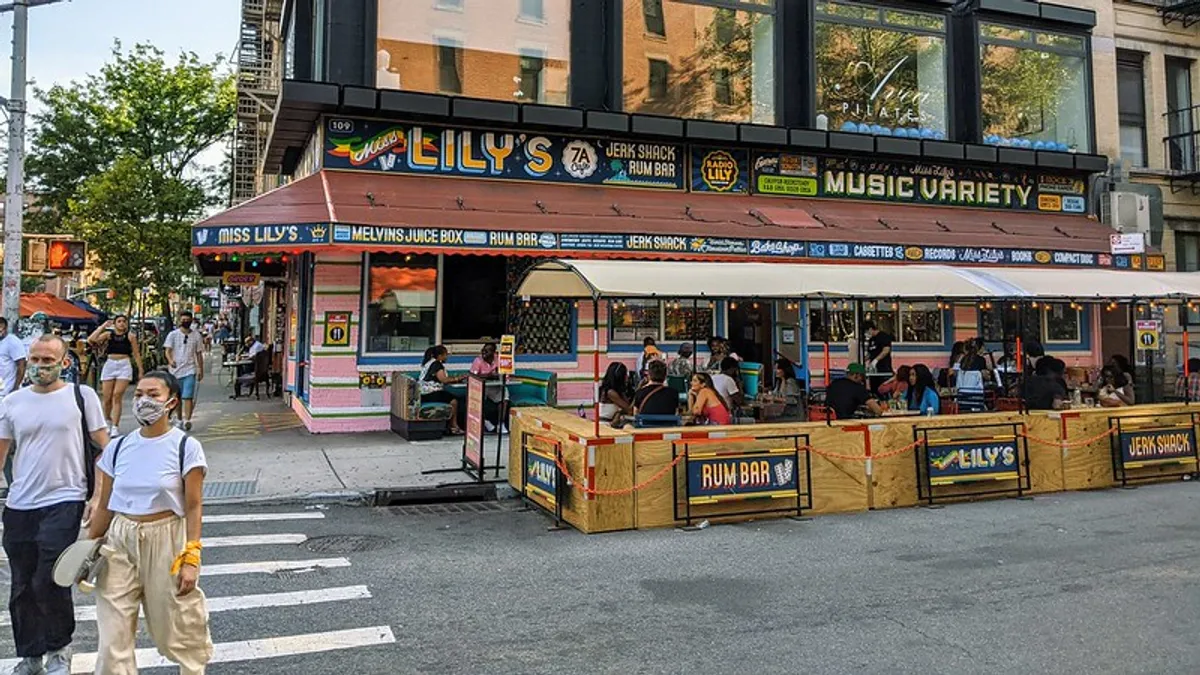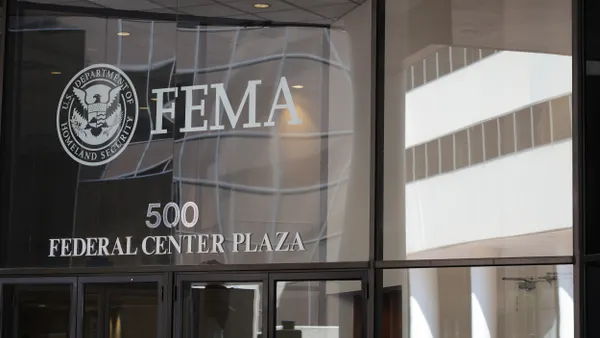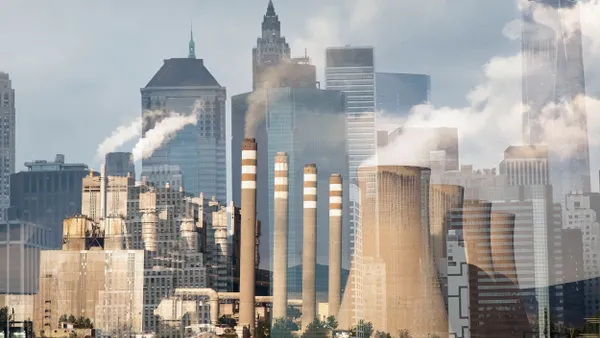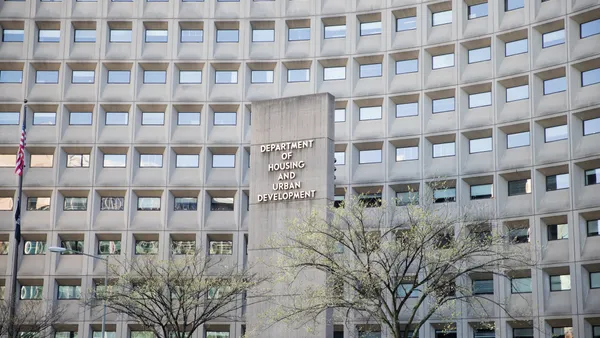Dive Brief:
- Chicago launched a new initiative called the Winter Design Challenge to solicit ideas that would allow outdoor dining to continue at restaurants and bars into the winter.
- Residents are encouraged to propose innovative outdoor dining solutions that adhere to COVID-19 health protocols. A panel of local restaurants and community members will select one winner in each of the three challenge categories: outdoor, standalone structures; indoor-adjacent spaces; and cultural shifts making winter dining more appealing.
- People can submit ideas to IDEO's open innovation platform through Sept. 7, and winners will be announced mid-September. Each winner receives a $5,000 cash prize in addition to the opportunity for restaurants throughout the city to pilot their idea.
Dive Insight:
The U.S. foodservice industry lost $165 billion in revenue from March through July and is on track to lose $240 billion this year, according to a National Restaurant Association analysis. Approximately 8 million restaurant employees were laid off or furloughed at the height of pandemic-related shutdowns. The analysis estimates that 3% of U.S. restaurants permanently closed during the pandemic, but the real scope of the damage won't be known for months.
Popularity for socially distant outdoor dining has boomed during the pandemic because scientists indicate weather conditions and UV light render the novel coronavirus far less transmissible outdoors than indoors. In-person dining shutdowns were mandated across the country early in the pandemic, but cities have been making concessions in line with health guidelines to help restaurants reopen and stay afloat. That includes adding or expanding outdoor dining space.
Chicago loosened some permitting restrictions, fast tracked the process for outdoor dining permits, allowed restaurants and bars to expand their sidewalk dining footprints and shut down vehicular access to certain restaurant-rich streets across the city to make additional space for on-site dining. However, as the threat of winter looms, leaders are facing pressure to do more.
"Outdoor dining has been a really good lifeline for the industry in the spring, summer and fall... But it doesn't matter what part of country you're in, for the most part, it will get colder and more difficult to do outdoor dining," said Mike Whatley, National Restaurant Association vice president for state and local affairs. "The City of Chicago has this creative idea to unleash the entrepreneurial spirit of businesses and individuals. It's a great idea."
Although restaurants across the country will face significant challenges when cold weather arrives, the trouble is more pronounced for those in traditionally harsh winter climates, such as Chicago's. Cold, snowy weather arrives earlier and lasts longer in the upper Midwest than many other parts of the country, further limiting the ability of restaurants and bars to successfully operate outdoors.
Other cities have been launching conversations with stakeholders about how to help restaurants this winter, but Chicago's approach is considered the first-of-its-kind. Instead of devising its own action plan, the city essentially is crowdsourcing concepts from people who may have more expertise on the topic, which is "letting the best ideas rise to the top," Whatley said.
Foodservice establishments are integrally intertwined into cities' functionality and losing more of them could hurt communities. Besides supplying jobs, real estate tax revenue and sales tax revenue, restaurants "are a big part of what makes city life so vibrant and exciting... Customers love it," Whatley said.
No silver bullet exists to help the restaurant industry survive the pandemic, but each measure has an additive effect that gives them a fighting chance, he said. For example, combining the ability for restaurants to sell alcoholic beverages to-go, which is illegal in most communities, with expanded outdoor dining space opens up additional sources of potential revenue.
"Having restaurants survive this crisis is really important for cities across the country... Officials realize the importance of the restaurant industry," Whatley said. "I would encourage other cities to take similar action [as Chicago] because we need all the ideas we can get to keep outdoor dining going all winter."












